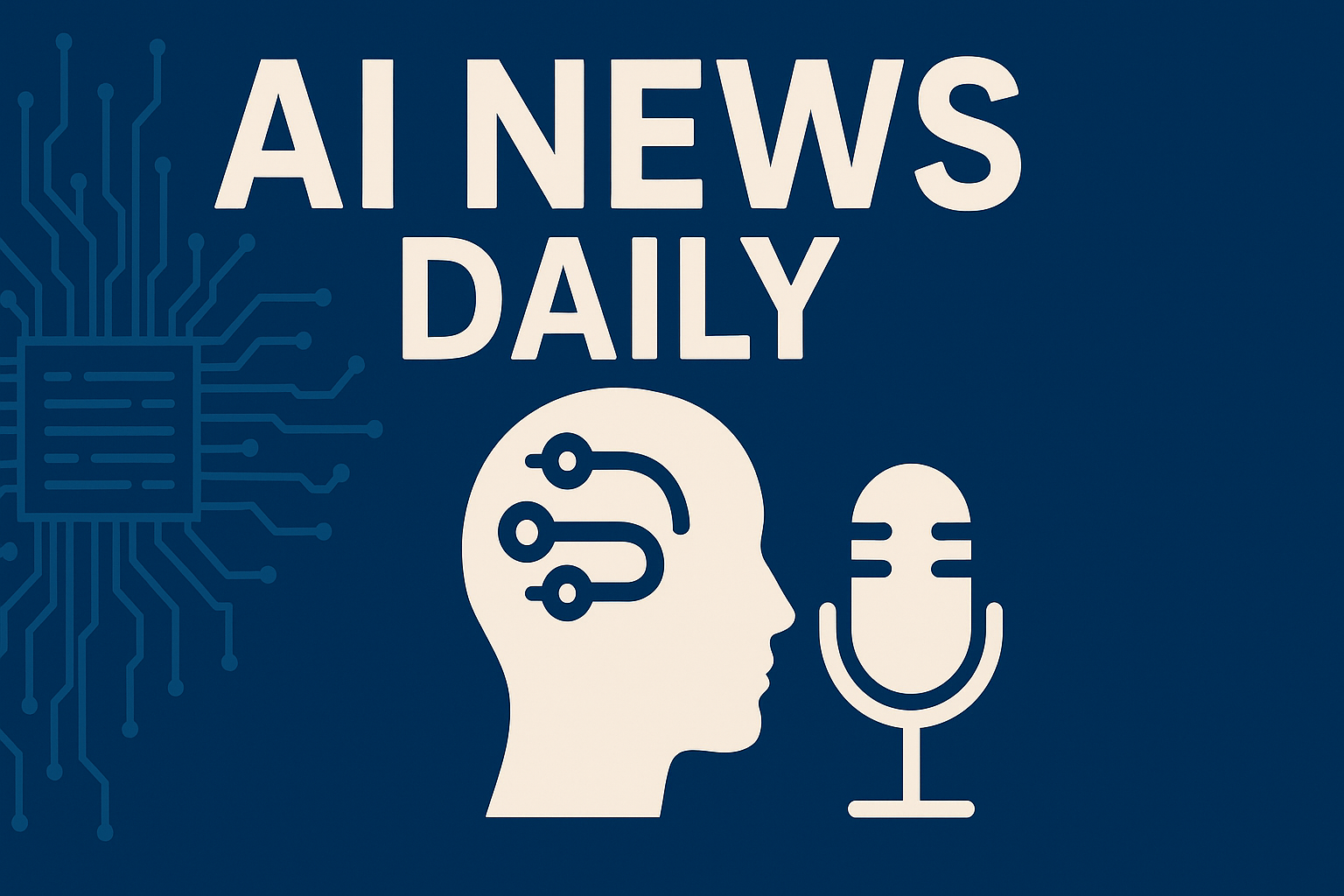Title: AI News Roundup: Otter.ai lawsuit, Oracle–Google AI pact, Gemini upgrades, OpenAI privacy plans, and global initiatives
Content: A busy stretch in AI saw legal scrutiny intensify, big-cloud alliances deepen, and a flurry of product, safety, and research moves.
Otter.ai was hit with a U.S. class-action lawsuit alleging it secretly recorded private conversations on services like Zoom and Google Meet and used them to train its transcription models without consent, including from non-users—stoking fresh privacy concerns. Texas opened investigations into Meta AI Studio and Character.AI, alleging their chatbots mislead children about mental health support without proper clinical oversight. Security researchers demonstrated that hidden prompts embedded in images can silently exfiltrate data from major chatbots such as ChatGPT and Google Gemini, while separate research found leading models, including GPT-4, preferentially favor AI-generated content over human work, raising fairness risks. An MIT study reported that only 5% of corporate generative AI projects deliver rapid revenue gains, blaming organizational “learning gaps” and weak adoption rather than technology.
OpenAI CEO Sam Altman cautioned that AI investing may be in a bubble reminiscent of the dotcom era and warned the U.S. may underestimate China’s rapid AI progress, adding that OpenAI is exploring open-weight models. He said the company is considering encryption features for ChatGPT to strengthen user privacy and is refining GPT-5 after a bumpy rollout to make interactions warmer and more engaging, with new modes rolling out.
Oracle deepened its partnership with Google by integrating Gemini models into Oracle Cloud Infrastructure, bringing generative AI analytics, automation, and streamlined app development to enterprises with an emphasis on privacy and scalability. Google expanded Gemini with a URL context tool for real-time webpage analysis, a no-code “Select and Ask” feature for building and editing web apps, and incognito-style chats that aren’t stored or used for training. It also launched an AI video generator for Gemini Advanced subscribers, while Google’s Flow program surpassed 100 million user-made videos in 90 days. Google and Anthropic announced a joint push to improve AI safety and reliability.
In space and global development, Google and NASA unveiled an AI medical assistant to help astronauts diagnose and treat conditions during Moon and Mars missions when communication delays limit help from Earth. Google opened an AI center in Ghana as part of wider “AI for Good” efforts in Africa focused on disaster response and health, amid calls from experts to prioritize local empowerment. The Simons Foundation committed $2 million annually to a multidisciplinary effort to uncover the physics and fundamental principles of how neural networks learn.
Products and enterprise adoption kept accelerating. Palo Alto Networks forecast rapid growth in AI-powered cybersecurity. Grammarly relaunched as a comprehensive AI productivity suite with writing agents, plagiarism and AI-content detection, and collaborative docs. AMD and Stability AI released Stable Diffusion 3.0 Medium optimized for fast, fully offline image generation on new Ryzen AI laptops. Samsung announced Galaxy Buds3 FE for September 2025 with built-in Gemini AI, live translation, spatial audio, and advanced noise cancellation at $149. Meta will further limit manual ad targeting from January 2026, pushing advertisers toward AI-managed campaigns it says boost conversions and cut costs. The UK NHS began piloting an AI tool to automate discharge paperwork to reduce hospital wait times. AWS and Code for Schools launched Australia’s first nationwide K–12 AI curriculum, aiming to reach one million students. Hugging Face released free tools for building customizable AI assistants, and Elon Musk’s Grok overtook Google Gemini in app-store rankings, underscoring intensifying competition in consumer chatbots.
